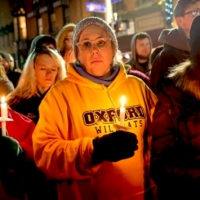Research Shows Deep Racial and Social Inequality in Job Displacement, Unemployment Insurance Amid COVID-19
New research published by the Center for Neighborhood Knowledge (CNK) at UCLA Luskin and Ong & Associates shows large nationwide racial and socioeconomic disparities in job displacement caused by the economic impact of the COVID-19 pandemic. The report, co-authored by Paul Ong, research professor and CNK director, examines racial and social inequality in job displacement resulting from COVID-19, including the inability to collect unemployment-insurance (UI) benefits. The researchers looked at U.S. Census Household Pulse Survey data that directly measured the effect of COVID-19 on job losses compared to the more general unemployment rate, which does not distinguish between pandemic and non-pandemic reasons for unemployment. Minority groups, lower-income and less educated workers, and the youngest workers are most severely affected. Here are some of the major findings:
- Although Black and Latinx workers are both more adversely affected by the pandemic, Latinx workers are highly impacted. Latinx workers account for 1 out of 4 displaced workers without UI benefits, although they make up 1 out of 6 employed workers.
- Displaced workers from households earning less than $25,000 per year account for 31% of the displaced workers without UI, yet they make up only 10.6% of the employed workers.
- Workers with no more than a high school education comprise almost half of all displaced workers who do not receive UI, although they represent only a third of employed workers.
- Younger workers are more likely to be displaced. Thirty percent of all displaced workers without UI are between the ages of 18 and 30 , but they make up 22% of the employed.










Leave a Reply
Want to join the discussion?Feel free to contribute!